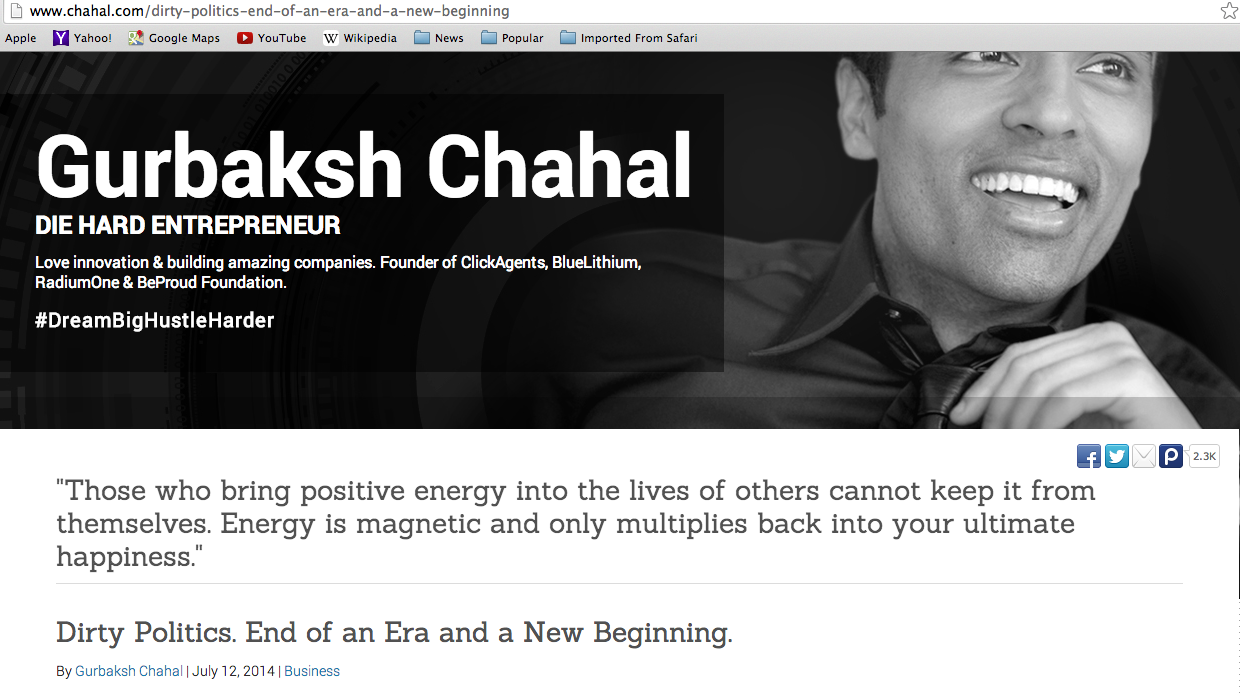
Much has changed since Gurbaksh Chahal hit publish on a scorching blog post on July 12. Then, he was promising an unceasing legal war against RadiumOne, the company he founded and led until his ouster in the spring in the wake of pleading guilty to domestic violence charges. At the time, Chahal said he was owed an apology from RadiumOne’s board and would expose what he called “greed, deception and betrayal” in his ouster.
That post was deleted, and now Chahal and RadiumOne are playing begrudgingly nice, with a joint statement that agrees to let bygones be bygones. Chahal did not quite get the apology he was demanding in his July 12 blog post, but he did get some recognition to the difficulties that resulted from pleading guilty to misdemeanor assault charges, being publicly and roundly excoriated, and ultimately fired by a board that previously supported his plea. From the statement:
The Board had always intended Gurbaksh to lead the company, and recognizes the enormous contributions he has made to RadiumOne. The Board knows that many people, including Gurbaksh and his family, have suffered tremendously. The Board did not intend to hurt Gurbaksh or his family by its decision, and recognizes that Gurbaksh’s termination made an already difficult situation for Gurbaksh and his family worse.
Chahal for his part “accepts” the statement, according to the release.
In an interview, which at the insistence of Chahal’s PR rep could not address anything beyond Gravity4, Chahal described his ad tech system as a way to cutting through the chaos of the Lumascape. It is a pitch that many ad tech companies make, of course, and the system he describes will — a way for marketers and agencies to more easily buy programmatically — will put it, inevitably, in competition with RadiumOne.
One aspect of Gravity4 that’s raised eyebrows: How was Chahal able to, in three months, build an all-in-one digital marketing platform and attract 50 full-time employees in three months with plans to open offices in New York and Chicago by the end of the year?
“One way is you know a lot of people in the industry,” he said. “There’s a lot of people I’ve wanted to work with over the last 15 years.”
Chahal declined to name any of the early employees or names of clients. As for building a brand in the wake of the domestic-violence charges, Chahal’s PR rep cut off the question and would not allow him to answer on the record.
More in Media

In Graphic Detail: The scale of the challenge facing publishers, politicians eager to damage Google’s adland dominance
Last year was a blowout ad revenue year for Google, despite challenges from several quarters.

Why Walmart is basically a tech company now
The retail giant joined the Nasdaq exchange, also home to technology companies like Amazon, in December.

The Athletic invests in live blogs, video to insulate sports coverage from AI scraping
As the Super Bowl and Winter Olympics collide, The Athletic is leaning into live blogs and video to keeps fans locked in, and AI bots at bay.






